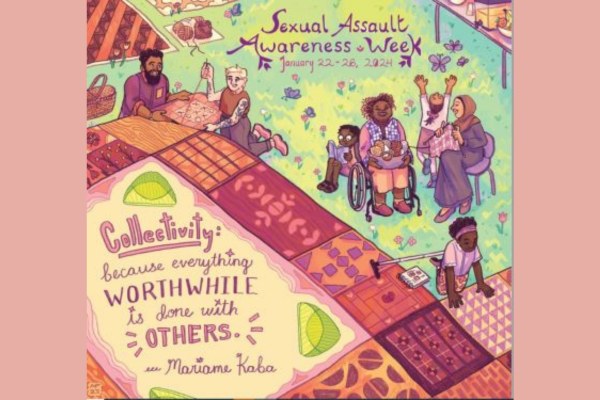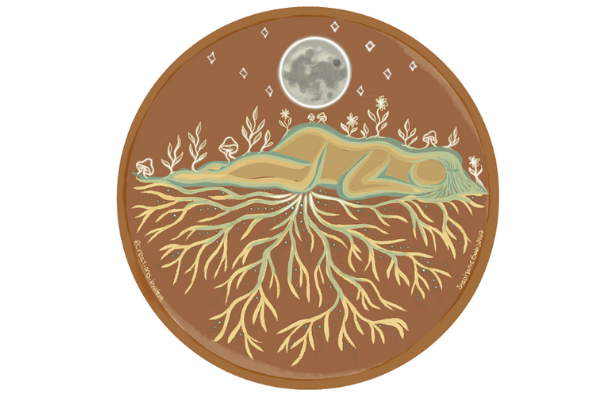Being an immunocompromised person who deals with both depression and anxiety, I’m currently in self-isolation and working hard to look after myself. Luckily, I have a lot of coping mechanisms I’ve acquired over the years to look after myself when I’m not feeling up to leaving my apartment, and today I want to share those with you.
Look After Your Immediate Environment
Keeping busy can help you fight off anxiety and boredom, and a clean environment is a big part of mental wellness. Make sure you keep on top of your chores or tackle those cleaning projects you’ve been putting off. Go through your junk drawer (no shame, we all have one) and toss out everything you don’t need. Sometimes even rearranging the layout of your room(s) can feel refreshing.
Nourish Your Mind
Continuing with keeping busy, a great way to do that is by learning a new skill, reading a book, researching something you’re curious about, or starting a new hobby. Personally, I’ve been tackling the large stack of books I own but haven’t read and watching Ted Talks on a variety of interesting topics. Learning something new every day feels great, gives me something to do, and makes me feel like I’ve accomplished something. I’ve been focusing my reading on books with positive, uplifting, or generally happy tones and steering away from heavier topics. There are plenty of free online resources to help you learn something new, and creative outlets are a great self-care tool!
Create a Self-Care Tool Kit
This is something I’ve always done and is an often-recommended tactic to deal with depression and anxiety. It’s something that you can have ready for when things start seeming a little too dark or overwhelming, and doesn’t have to be a literal, physical kit – it can just be a checklist of self-care tactics or routines that work for you.
Some items that can go in a physical self-care kit:
- A mindfulness colouring book along with your colouring utensil of choice
- A sketchbook or journal, depending on whether you prefer drawing or writing to relax
- Some of your go-to feel-good movies or TV shows (if you use subscription services rather than DVDs, these can go on the checklist instead of in a kit)
- Some fun, silly things like bubbles, a slinky, some silly putty (physical tools like this that you can manipulate can be great grounding techniques when you’re feeling anxious!), or a stuffed animal
- Activities to concentrate on like Legos, a video game, a puzzle book or actual puzzle
- A comforting spiritual/religious item
- A pampering kit: bath salts/bath bombs/bubble bath; nail polish and make-up; face masks; essential oils, candles, or other aromatherapy tools; fuzzy socks and a cozy onesie or robe… anything at all that will help you feel pampered and relaxed
- A checklist of the ways you should be looking after yourself, including whether you’ve eaten (the kit can also include a cookbook or recipe printouts!), drank enough water, had some fresh air, and had enough sleep.
- TIP: while self-isolating getting fresh air can be a little more difficult. Being in an apartment building, I deal with this by opening windows as often as I can, going out on my balcony (when my mental health is stable enough to do so), keeping my curtains open to get lots of sunlight, and maybe going for a walk around the block during an off hour when not too many people are out-and-about.
- TIP: while getting enough sleep is very important, getting too much sleep can also be detrimental to your mental health. Be sure you’re following a good sleep schedule.
You could also write out a checklist or have one in your head for less physical self-care tools like:
- Meditation and/or yoga
- Phone numbers or other contact information for counselling resources you can reach out to (don’t forget you can still access Carleton’s Health and Counselling Services and use Empower Me, and there are plenty of 24hr crisis lines)
- Grounding techniques – a good grounding technique for anxiety is focusing on your five senses and identifying three things you can currently see, hear, taste, touch, and smell. You can also use visualization exercises, deep breathing techniques, positive affirmations/self-talk, or whatever other anxiety and/or depression techniques that work for you. Not familiar with such techniques? Try Googling for simple anxiety/depression techniques, making sure you’re using a trustworthy source.
- Remember that these should never replace the help of an actual qualified mental health practitioner.
- A list of people you can contact – friends, family members, or a partner – to help you through what you’re feeling, distract you, or remind you that you aren’t alone.
- TIP: Keeping in contact with people during self-isolation is one of the best things you can do. Don’t forget you can still video chat, instant message, or call the people you care about. Something I’m going to be doing this week is using a service that allows me to watch movies or TV shows online with my friends at the same time even though we aren’t in the same city.
- TIP: Be careful when it comes to social media – while it can be a good way to keep in contact with loved ones, it can also be full of negative posts and news that can really weigh on you.
Not in Full Isolation? Help Others Who Are
Even if you aren’t personally in self-isolation, many of the people you know may be staying in, and lots of places around town are closing, so your social life has still significantly changed. Helping others can be a great way to help ourselves, as it can give us a sense of accomplishment, keep us busy, give us a purpose when we have fewer things to do, and just generally give us that good feeling of knowing you’ve helped someone in need. Many people aren’t able to do things for themselves right now and may be in need of some help. Offer to do errands for your elderly or disabled neighbors who are at higher risk if they leave their homes. Have a car? Looking for some money? Sign up to be a full-service shopper with Instacart to shop and deliver groceries for the people who can’t do it for themselves right now.
The most important thing to remember right now is to reach out for help when you need it, and remember you aren’t alone!
Recent Quote the Raven Posts
Read the latest from our student Bloggers











 Ask Me
Ask Me